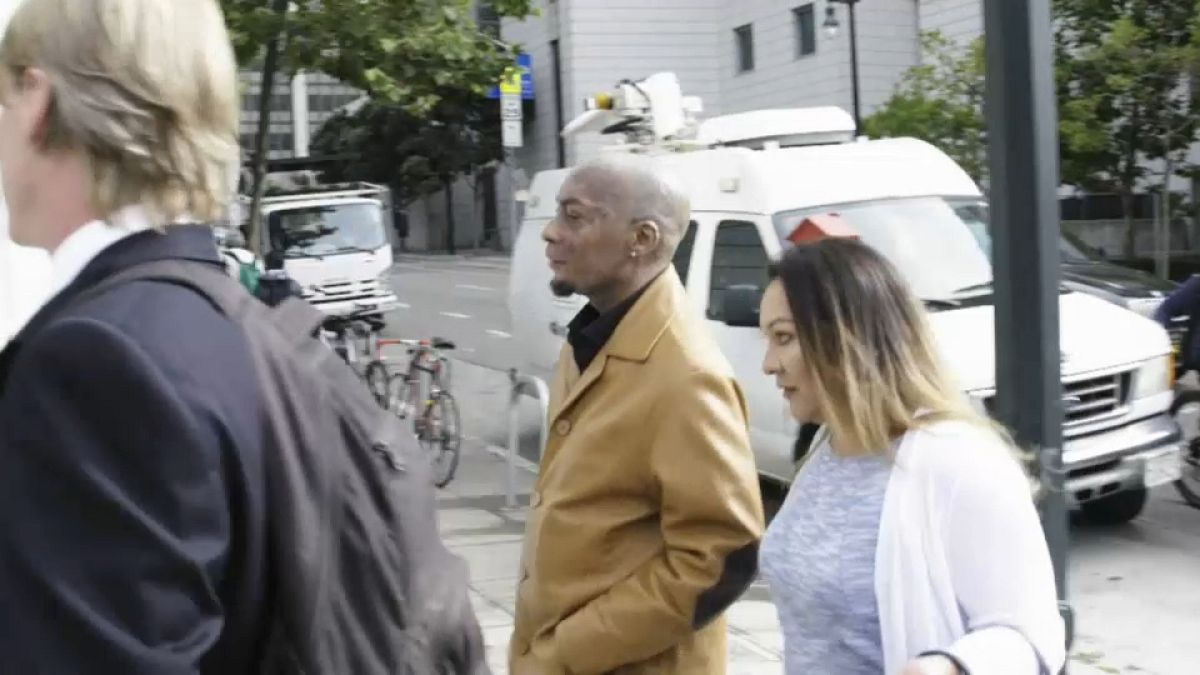Dewayne Johnson is one of 5,000 plaintiffs claiming against the company, Monsanto, with his potentially ground-breaking case believed to be the first to reach a trial.
A landmark verdict is expected to be reached, to determine whether a company's weedkiller gave a former school groundsman terminal cancer.
Dewayne Johnson is one of more than 5,000 plaintiffs across the United States claiming against Monsanto's glyphosate-containing herbicides.
According to the Guardian, Dewayne Johnson says if he'd known what he knew now about Monsanto's Roundup weedkiller, he would never have sprayed it on school grounds, describing it as unethical.
The weedkiller, also known as herbicidal glyphosate, has been considered by Oms as "potentially carcinogenic" from 2015, but is still sold in America and Europe. It remains the world's most widely-used herbicide, registered in 130 countries and approved for use on more than 100 crops.
Johnson, a father of three, testified in court on Monday, accusing Monsanto of hiding its cancer dangers for decades. He is believed to be the first person to take the agrochemical company to trial over the matter.
Johnson was diagnosed with cancer in 2014. He claims his doctors have told him he's unlikely to live past 2020 and may even have just months to live.
This decision could "change the world"
His trial began in San Francisco's Superior Court of California four weeks ago.
On Tuesday, Johnson's lawyer Brent Wisner urged jurors to hold Monsanto liable and punish them with a verdict he said would "actually change the world."
In court, Johnson had been describing the pain he'd been experiencing from his exposure to the herbicides while using the weedkiller. He reiterated his belief that its chemicals caused non-Hodgkin lymphoma (NHL), a blood cell cancer.
His attourneys presented internal Monsanto emails, allegedly revealing the company's repeated efforts to ignore experts' warnings and utilise favourable scientific analyses.
46-year-old Johnson told the courtroom about his excitement for starting work in 2012 as a groundskeeper and pest manager for the school district in Benicia, a suburb north of San Francisco. He explained how, for several hours a day, his work would involve spraying herbicide to control weeds on school grounds.
Despite wearing extensive protective clothing, he still became exposed to the weed-killing chemicals as a result of "drift", particularly on his face. In more detail, he described two incidents when he had significant contact with the glyphosate-based weed-killer, due to mishaps and leaking while spraying.
Monsanto: "Roundup does not cause cancer"
In response to the continued accusations, Monsanto, a unit of Bayer AG following a $62.5 billion acquisition by the German conglomerate, firmy deny the allegations.
They say expert testimony on which Johnson and others rely do not satisfy any scientific or legal requirements. They maintain the weedkiller Roundup is safe and not linked to cancer.
This is despite a number of studies that offer contrasting views, including the World Health Organisation's international agency for research on cancer (IARC). In 2015, it classified glyphosate as "probably carcinogenic to humans”.
If it finds Monsanto liable, the jury can decide to award punitive damages on top of the more than $39 million in compensatory damages Johnson demanded.
